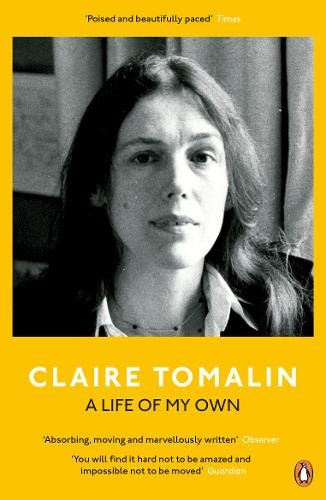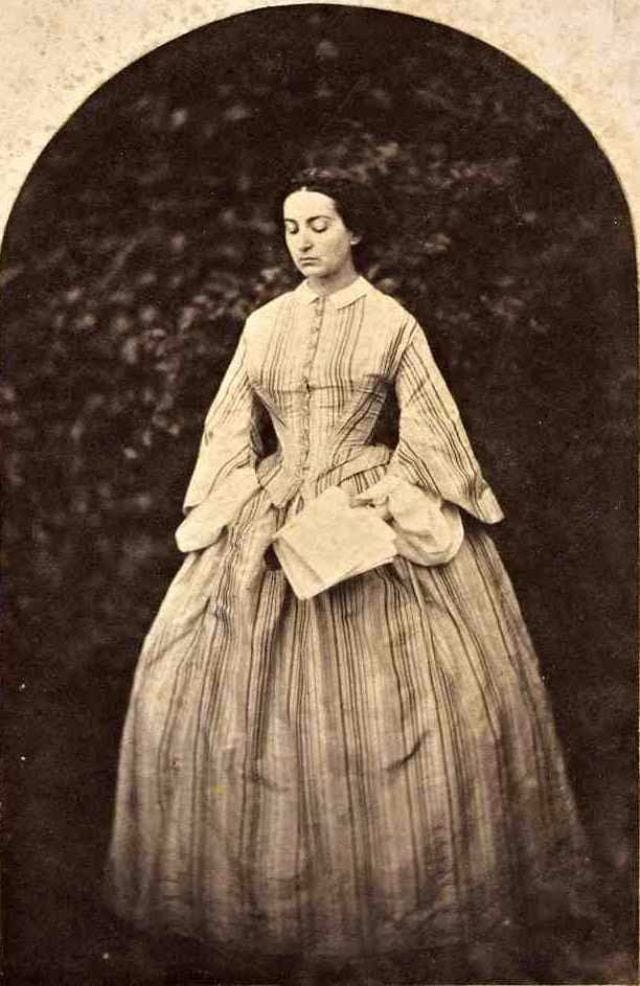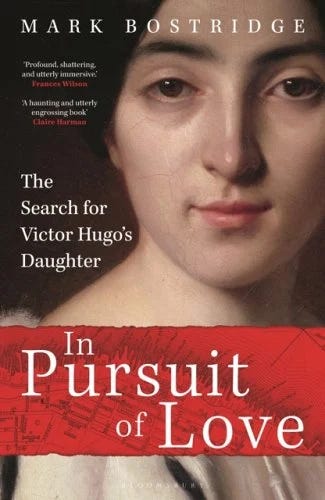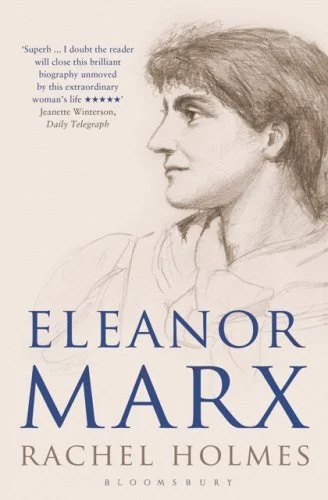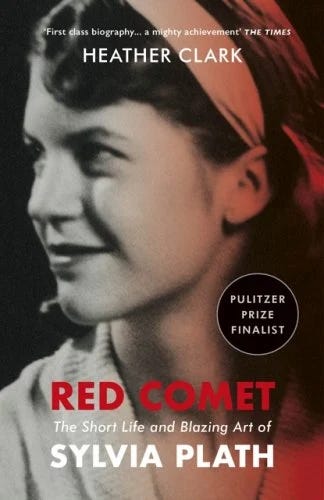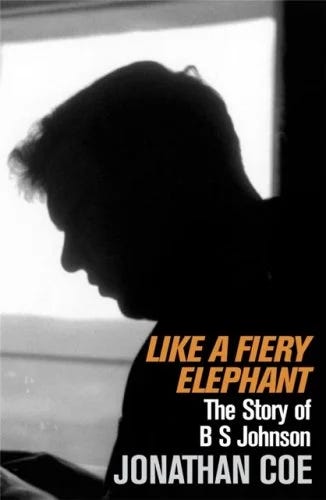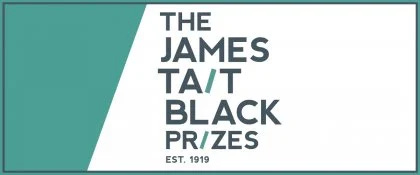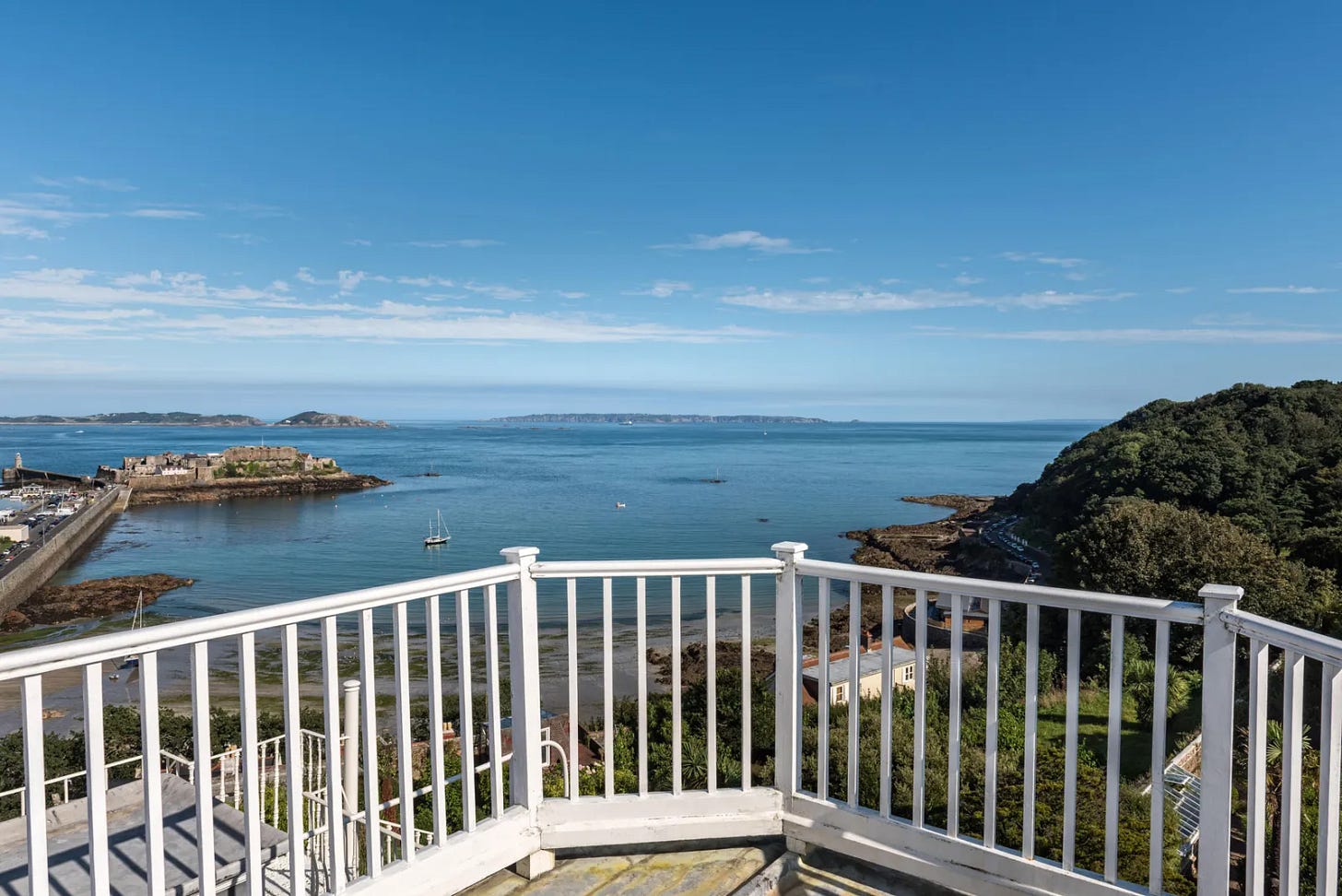
Sometimes books set you alight. Sparks form into thoughts that burn and make something entirely different. That’s what happened when I read In Pursuit of Love: The Search for Victor Hugo's Daughter by Mark Bostridge. It’s a biography of Adèle Hugo, the younger daughter of Victor Hugo, and it made me think a great deal about the politics and craft of literary biography.
I enjoy literary biographies for the same reasons people enjoy crime thrillers. It’s because we’re nosy (or curious), and want to escape from our own lives with a puzzle to be solved. In this case, the puzzle is: what is the life of someone who creates? As with crime fiction, many literary biographies are inexorably focused on the tragic, as can be seen in the recommended titles below. Personally, I’m more drawn to the minutiae of an artist’s life. I want to know who made their breakfasts, how they paid their bills, what languages they spoke to their lovers in. Sadly, this sort of information is often absent from biographies. Is it possible that these details aren’t included because they’re not the sorts of things the authors worry about? Perhaps they don’t even think to look for the answers. But why would this be?
93% of the British population are not privately educated, yet every literary biography I read is written by someone who was.1 Does this matter? Should we care if only the rich are publishing literary biographies? I say yes. Drawing from a limited pool of writers inevitably presents a limited perspective. This not only influences the choice of subjects but also the conclusions drawn. Literary biography is not a particularly experimental form, usually conforming to the tried and tested formulae of birth, life, death. This lack of innovation could be a symptom of a monoculture which once you start seeing it, cannot be unseen.
When I read the memoir of the doyenne of literary biographers, Claire Tomalin’s A Life of My Own, I was enraged. Of course, Tomalin (private school and Cambridge) faced difficulties in life, not least the tragedies around her children, but I was staggered by how easy everything seemed for her; getting nice big houses in London, having lots of babies, securing publishing deals and endless interesting literary work. She seemed to walk into it all, after being born to creative, academic parents. When I compare this to the lives my nans lived (approximate peers of Tomalin), it blows my mind. A Life of My Own was published nearly a decade ago, and when I read it I was in a miserable relationship, living in unpleasant rented flats with people I didn’t like, and slogging my guts out in the public sector. My envy of such privilege almost certainly contributed to a resentment of literary biographers. Now, with some years under my belt and a filed-down chip on my shoulder, I wonder if there is still some validity to this objection. Is literary biography uniquely a pursuit of the rich?
Unsurprisingly, Bostridge lives in Hampstead and went to a renowned private school and Oxford University, all of which he writes about in In Pursuit of Love. Thanks to this rather nice set of circumstances, he has to dig for traumas to harvest. The first is the classic mean dad to a sensitive gay son. Bostridge’s father was cold and distant, unimpressed by his son’s interest in female literary figures, calling him ‘princess’ etc. Norma Clarke, who reviewed this book for the TLS and discussed it on their podcast, found this quite shocking. I didn’t. It seemed standard behaviour to me and fairly mild at that. This is not to say it’s not had a detrimental impact on Bostridge, but I found Clarke’s horror amusingly naïve. The other traumas recounted in the book are of a youthful unrequited love and a friend’s mental health breakdown, the former of which will feel familiar to all, while the latter felt slightly intrusive. By far the most powerful admission from Bostridge’s own life is when his behaviour came surprisingly close to Adèle’s, which is genuinely shocking, but I won’t ruin it for you here.
Unlike with fiction, publishers are highly unlikely to offer a contract for a literary biography to an unknown writer. If you want to publish a literary biography there are three routes. First, you could spend many years becoming an academic. Alternatively, there are some indie publishers and small presses who are willing to take more of a punt on lesser-known biographers and subjects. There are two new examples of these approaches I’m looking forward to reading: Amy Ashwood Garvey And The Future Of Black Feminist Archives by Nydia A. Swaby and Finding Mangan: The many lives and afterlives of James Clarence Mangan by Bridget Hourican.
The other way to become a literary biographer is to be a literary grande dame. Historically this has been a genre populated by well-heeled lady writers, often married to male journalists who write thundering books of history or politics. I don’t think the gender of a biographer necessarily matters, though I cannot forget the moment in A.N. Wilson’s (Andrew Norman, private school and Oxford) biography of Queen Victoria, when he describes one of her births as ‘easy’. Come on mate. You could call it uncomplicated, or straightforward, but surely giving birth is never ‘easy’.
While I adore the work of these grande dames, a clear pattern starts to emerge when I look at the biographies on my TBR pile… I want to read Trollope by Victoria Glendinning (private school and Oxford), not least because Trollope was in Barbados just seven years before Adèle Hugo. There’s Burying the Bones: Pearl Buck in China by Hilary Spurling (private school and Oxford), and I’m desperately keen to get my hands on Hermione Lee’s (private school and Oxford) new biography of Anita Brookner. I feel like I’ve been waiting for that one for years.
The fact that all these eminent biographers come from the same background is of course not their fault. If anything it simply demonstrates the truth that if everyone had the option, we’d all dedicate our lives to making art. While individuals can do a lot through mentorship, patronage and lobbying, this monoculture is created by the literary industry, which does little to make itself more accessible, especially in the realm of non-fiction. Producing a biography can be a lengthy, expensive process for an ultimately limited audience. It demands all the same expenses as historical research, spending time in archives, travelling to the varying places that make up a life. Embarking on such a project without a publishing contract or grant would be an impossibility for most people.
In Pursuit of Love is a perfect example of the historical truth that if you can research, there is always something new to be discovered, and of the value of actually going to the places you’re researching. The confidence that comes from a life of privilege is also apparent throughout In Pursuit of Love. For example, Bostridge admits that he is not a fluent French speaker, but that doesn’t stop him embarking on this project anyway. This is overlayed by the male privilege that abounds in travel writing. Relying on the kindness of strangers when traversing the world is generally a gift for men to enjoy. On several occasions Bostridge recounts accepting lifts from strangers, and he has some strange encounters in Barbados. In the TLS podcast Clarke said this made him vulnerable like Adèle, with which I profoundly disagree. Bostridge’s experiences are not like Adèle’s. Her travels were utterly extraordinary for the time, and ruined her, reputationally and mentally. His travels are nice jaunts. Bostridge decries his education, but Adèle didn’t even really get one. Engaging in this consideration of Bostridge’s authorship does not take away from my enjoyment of the biography. When the author places themselves in the text, they become a character to ponder.
Some literary biographers seem more aware of these issues than others. I have a soft spot for Geoff Dyer (grammar school and Oxford) not only because he’s a Cotswolds boy from a working-class family, but because he wrote the most brilliant, hilarious essay in Selfish, Shallow and Self-Absorbed: Sixteen Writers on the Decision Not to Have Kids edited by Meghan Daum. Dyer’s Out of Sheer Rage: In the Shadow of D. H. Lawrence is a book-length exploration of the perils of writing a literary biography, and is a fantastic read even if, like me, you’re not a Lawrence fan.
Richard Holmes (private school and Cambridge), has written several thoughtful books reflecting on his work as a literary biographer; Footsteps; Sidetracks and The Long Pursuit. Holmes aptly calls himself ‘a romantic biographer’, in part because his subjects are romantic poets and artists, but more so because of his feelings for the craft. These books show Holmes falling in love with the work of biography, repeatedly trying to see things from a subject’s perspective, as the below quote from this Paris Review interview shows:
HOLMES: ‘At eighteen, just out of Roman Catholic school and desperate for freedom, I set off alone wandering around France for several months. My mother sent me her old copy of Robert Louis Stevenson’s Travels with a Donkey in the Cévennes, as a kind of good-luck charm. A little red hardback with a tiny map in the front. I still have it. Suddenly I thought, Here is the map and this is the journey I must make. So I went down through the Lozère, following Stevenson’s track, on foot with a rucksack, sleeping rough—but no donkey. It only lasted a couple of weeks, but for me, it was tough, very lonely, a kind of initiation. The Cévennes is like a French version of the Scottish Highlands, wild and remote. I saw no one for days, but I somehow believed I saw Stevenson and met him. I slept à la belle étoile and bathed in the mountain streams. I had a traveler’s check for fifty pounds in my shoe. I started keeping a notebook about Stevenson’s trip, and that’s how it all began’.
As unrelatable as this is, Holmes possesses one of the most important characteristics of a good biographer, the willingness to be surprised. That’s also why In Pursuit of Love impressed me so much. Bostridge ticks all the classic boxes for a literary biographer, but here he does something different. Adèle Hugo lived the sort of long, adventurous, unhappy life that provides perfect fodder for a biography. It’s one of those stories that you can’t believe you haven’t already read. Bostridge writes with gusto and a confident command of the material, quoting directly and judiciously from both published texts and correspondence. In doing so, it earns its digressions in Bostridge’s own life, even when they don’t feel hugely relevant. The book is short, memorable, and you don’t need to be a Hugo aficionado to enjoy it.
I particularly appreciated how Bostridge doesn’t show his hand all at once, but reveals the newly discovered information slowly, surprisingly, and with great dramatic effect. Bostridge is fascinating when discussing the process of creating a biography, recounting his meetings with other biographers and people who have personal links to Adèle. He shows the fruitlessness of some avenues of research, and describes how the pivotal information on which the book is based is found by a female amateur family historian, who unearthed archival treasure in London while Bostridge was off sunning himself in the Caribbean. I can’t imagine many biographers being so candid.
Ultimately In Pursuit of Love is a book about how limited women’s lives were, and the pain of love. It’s understandable why romance had such an outsized role in the lives of nineteenth century women. It was essentially the only route to escape and acquire a life of one’s own. The real question is, why does it remain so?
If this has all whetted your appetite, below are some literary biographies which would make for good companions reads alongside In Pursuit of Love.
Eleanor Marx by Rachel Holmes
The parallels are strong between this and In Pursuit of Love. Both are about women living in the shadows of a famous father, both were taken in by a dubious suitor and were ultimately ruined by love. Unlike Adèle however, Eleanor Marx was hugely productive and lived a fascinatingly active political life. Holmes does well to excavate Eleanor from the story of her father, enabling her to be considered in her own right, and as a result creates a brilliant radical history.
Red Comet by Heather Clark
Another woman who could also be argued to have been ruined by love after moving abroad to start a new life. There are so many biographies of Plath, it can be a little overwhelming, but this really is the ultimate offering. While the Janet Malcolm is excellent, and I’m currently reading Emily Van Duyne’s new one, what Clark has produced is both hugely comprehensive and readable. She manages the rare feat of getting you to look at a subject in new way, not least by focusing on Plath as an artist, providing serious analysis of her poetry alongside the dramatic life story. A masterclass in how to shine new light on a familiar subject.
Like a Fiery Elephant: The Story of B. S. Johnson by Jonathan Coe
This one isn’t like the others but I had to mention it. It’s not about a woman ruined by love, but instead focuses on a male artist undoubtedly in possession of a large ego. Don’t worry, it’s still a tragic story though. In B S Johnson Coe has the gift of an extraordinary subject, and he does a marvellous job of corralling it into a narrative. While Johnson may be less known today, this is a must read for anyone interested in the politics of publishing, and the murky, corrosive relationship between art and money.
If you want to find more interesting biographies, have a look at the James Tait Black Prize, the UK's longest running literary award. Established in 1919, the James Tait Black Prizes are the only major book prize to be judged by scholars and students, and to have a Biography category. I was delighted to see the Women’s Prize expand into Non-Fiction this year, but would like to see some more history and biography be nominated. Sadly, I doubt they can break the dominance of the memoir in this self-reflective age...
Thanks for reading. If you enjoyed this post, please hit the ❤️ below, it really helps.
Not a subscriber? Take a moment and sign up to The Venerable Read for free.
All books linked go to The Venerable Read at Bookshop.org, from which I receive a very small amount of affiliate proceeds.
According to the most recently published data, see the Elitist Britain report https://www.gov.uk/government/publications/elitist-britain-2019




